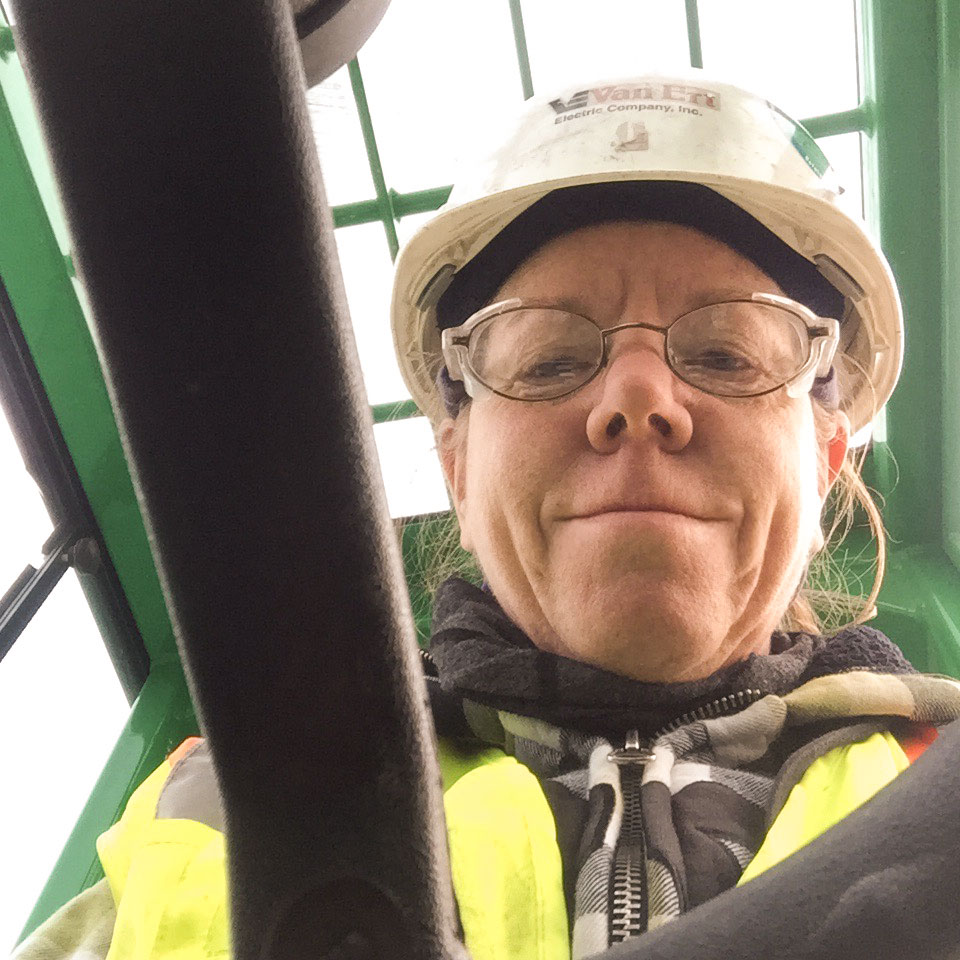Earn while you learn
Top trainers create
top journey WORKERS
Following an electrician through these apprenticeship programs and into their careers as journey level workers, combined with “state of the art” training facilities, highly trained instructional staff and meaningful continuing education provides the highest quality, professional installations by the very best trained workforce.
We have two electrical apprenticeship training programs.
Construction (Inside) Electrician,
Installer-Technician (Voice-Data-Video)
Each apprenticeship requires on the job training as well as related (classroom) instruction. The apprentice will be paid for on the job training and Wisconsin is unique in requiring employers to pay apprentices their hourly wage while attending a portion of their related instruction. Investigate each program to determine which apprenticeship program is right for you.
What is An Apprenticeship?
During the hours of required classroom instruction, the apprentice learns how to use, care for, and safely handle the tools and materials used in the trade. Apprentices learn safety techniques needed to protect themselves on the job.
Additional unpaid classroom instruction is required on the apprentice’s own time.
Apprentices are employed by a contractor for the term of their apprenticeship. The employer agrees to pay each apprentice for work performed, and to provide supervised structured On-the-Job Training in the basic skills of the trade. While on the job-site, apprentices learn approved methods of installation. They learn how to install, test, maintain and repair all systems and equipment.
VOICE, DATA, VIDEO APPRENTICESHIP OPPORTUNITIES Minimize
If Voice, Data, Video work is your interest, then apply for the VDV Apprenticeship Program.
This is a three-year apprenticeship program. You will be trained to work as a Tele/Data Technician on residential, commercial, and industrial locations. Apprentices work under the direct supervision of a qualified Installer/Technician doing Tele/Data installation and repair on office buildings, schools, hospitals, stores, apartment buildings, private homes, or any other location where tele/data installation must be provided and maintained.
Requirements and Opportunities
- A high school diploma (or equivalent)
- Demonstrated ability in math and reading skills
- Good work ethics
- Be drug free (a negative reading on a drug screen)
- A willingness to learn and succeed
DO WE REALLY PAY YOU TO LEARN?
Yes. Our training program, known as apprenticeship, combines formal, instructor lead classes with on-the-job experience and you will earn an attractive wage for every hour that you spend on the job.
HOW MUCH WILL YOU EARN?
That depends on the program you choose and your locality. Some of the programs take three years to complete, one takes five; but you can expect to earn between $80,000 and $150,000 during the course of your apprenticeship, and you’ll receive health insurance and pension credits as well.
APTITUDE TEST
All applicants must complete the Electrical Training ALLIANCE (NJATC) Apprentice Selection Tests Applicants must attained the established norms as determined and validated by the American Institutes for Research.
Arrangements for testing are made by the Committee.
More specific information on the Aptitude Test can be located at: electricaltrainingalliance.org/SamplePage
The Apprenticeship Interview
- How long will the interview last?
- Who will interview me?
- What kinds of questions will be asked?
- Can I do anything to prepare for the interview?
- How do I request an accommodation for a disability?
- What happens after the interview?

What to expect
10 to 20 Minutes
The Committee
The Committee members are highly experienced electrical professionals. They are aware of the knowledge, skills, abilities, and other characteristics that individuals need to be successful electrical workers.
The interview team usually consists of six (6) Committee members. In all likelihood, each Committee member will take turns asking you questions during the interview.
Interview Questions
(1) The situation. First, you should very briefly describe the situation. Usually the situation can be described in a sentence or two.
(2) What you did. Second, describe the actions you took—what you did, what you made, who you talked to, what you said—in that situation. Use action verbs and first person, such as—”I wrote,” “I called,” “I discussed,” and so on.
(3) The result. Finally, tell the committee how it turned out. It should only take a sentence or two to describe the result.
An example of a complete response to the question “Tell me about a time when you had to set up and type a document” appears below:
Situation: My boss asked me to set up and type a complicated document with headers and footers. I had never used headers or footers before.
Action: I obtained a copy of the software manual and read about using headers and footers. Then, I set up the document and gave my boss an example page to look at before I developed the whole document.
Result: My boss edited the example I gave him and liked the final document when I was finished.
Interview Tips
- Don’t spend too much time on a question.
- When asked about your previous experiences, describe (1) the situation you encountered, (2) what you did in that situation, and (3) how it turned out.
- Avoid irrelevant topics. Focus on the questions that the committee asks.
- Speak clearly and loudly enough for the committee to hear and understand you.
- Relax, Relax, Relax. The interview is not an interrogation. It ‘s simply an opportunity for you to meet and speak with the Apprenticeship Committee.
- Get a good night’s rest the day before and put your best foot forward during your interview.
Interview Preparation
Before the interview, review your list of activities. Think about situations that stand out in your mind because you did something that you are particularly proud of; you learned an important lesson; or you had to respond to a real challenge. Thinking about situations you have encountered in the past will help you respond to the Committee’s questions. It will also help minimize stress during the interview.
Accommodations
After the Interview
Find a program near you
Enter your zip code to learn more about opportunities in your area.
Build Your Future
Submit your Questions?
